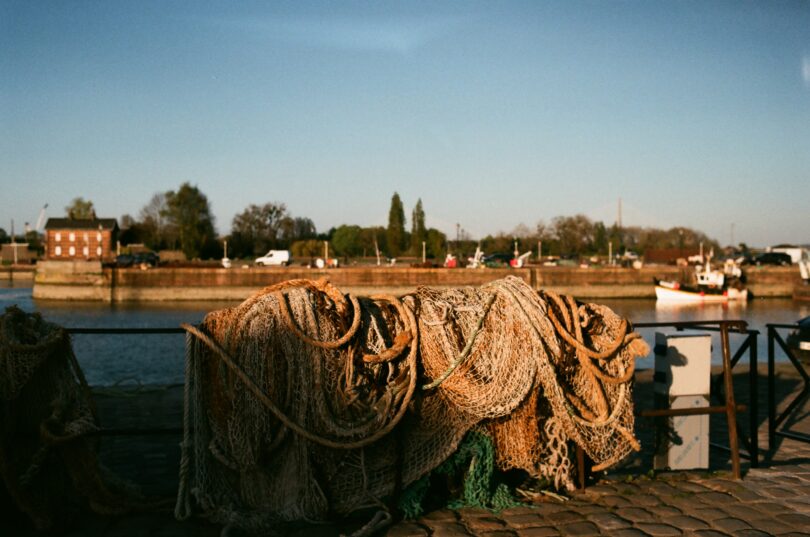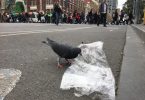“It’s a shame for the people of Victoria, you know, the government’s done a very good job, spent $27 million, on buying out the commercial anglers in Port Phillip Bay, and removing 600 tonnes of fresh local seafood from the plates of Victorian people.”
Phil McAdam is a commercial angler whose family have fished the Port Phillip Bay for generations. But he might just be the last to do so.
As a part of Victorian Labor’s promise made in the last state election, Daniel Andrews’ government has now applied a blanket ban on the use of nets by commercial anglers as of April 1st this year.
The changes are expected to free up fish previously netted by professionals before the small-fry even had a chance to reel them in. Thirty-five of the bay’s 43 original net fishers have left for deeper waters.
But this sea-change hasn’t come without its detractors.
“90 percent of them took the buyout straight away… you put half a million dollars or whatever on the table, you can’t blame them for considering that, even though, they found out later they gave it to them in one hand and taxed them with the other.”
The remaining eight net fishers are now charged with shifting their operations to a limited hook-and-line snapper fishery.
In Phil’s mind, the closure was a misguided effort.
“Last financial year we put 100 tonnes of sardine through the Melbourne Seafood Centre for eating [and] it can’t be replaced with anything fresh and local. The nearest thing it can be replaced with is fish from Lakes Entrance, which are 36 hours older.
“With the shelf-life of a sardine, that is a long time.”
Others think the move was purely political, fishing for votes rather than a marked environmental impact. Whatever the case, April 1st ushered in the end of a saga since the fisheries amendment came into effect in 2015. It was the end of an era for an industry and the beginning of a period of uncertainty for many.
Bill Tilley is the Shadow Minister for Boating and Fishing and member for Benambra. He’s particularly concerned about the governments handling of these changes, especially when it came to the consultation with members of the commercial fishing community, like Phil McAdam.
“I’ll go directly to the point with Port Phillip Bay if I may. Seeing the end to netting particularly for sardine, pilchard and whitebait, the thing is, that affects the great offering that comes out of Port Phillip Bay and that is all of Victoria’s resource.”
Phil McAdam said after hearing of the closure on the news, he has received only one letter from Fisheries Victoria.
“It wasn’t until nine months later we got a meeting with [former Minister for Resources] Jaala Pulford, it was a meeting at Spring Street, we walked into this room and all sat down, [and] she said, ‘I’m here to give you certainty'”
“When you’ve got your neck in the noose, its not the sort of thing you want to hear.”
Figures for the bay’s commercial production for the last calendar year show a twelve tonne decrease from the catch in 2019. But look back to 2016, one year after the changes began to take effect, the total output has dropped by 345 tonnes – that’s a 56% decrease.
But what does a member of one of Victoria’s most diehard recreational fishing communities, a spearfisher, make of all this?
Ric Fallu is 72 years old, and he’s been spearfishing and free-diving for over half a century. As a younger man, he did a short stint as a deck hand in a commercial outfit, and he’s worked as a fishery manager in multiple states.
In Ric’s opinion, despite growing pressure on the fishery due to Melbourne’s increasing population, his luck spearfishing in the bay has actually gotten better in 50 years since he started.
“When I was a boy, commercial anglers were viewed very romantically. But the social acceptance for commercial fishing has been waning. Nets have had a bad rap over the years, but really, a properly designed net can be one of the most selective forms of fishing.”
“My short opinion is that banning netting in the bay isn’t a giant step forward for conservation. What I think it is, is a reallocation of resources away from the commercial sector to the recreational. As a spear-fisher, I don’t think it’s a bad thing. I also think it’s in line with community expectations.”
As for Phil McAdam, he’s in the process of closing shop for the last time with an uncertain future ahead.




